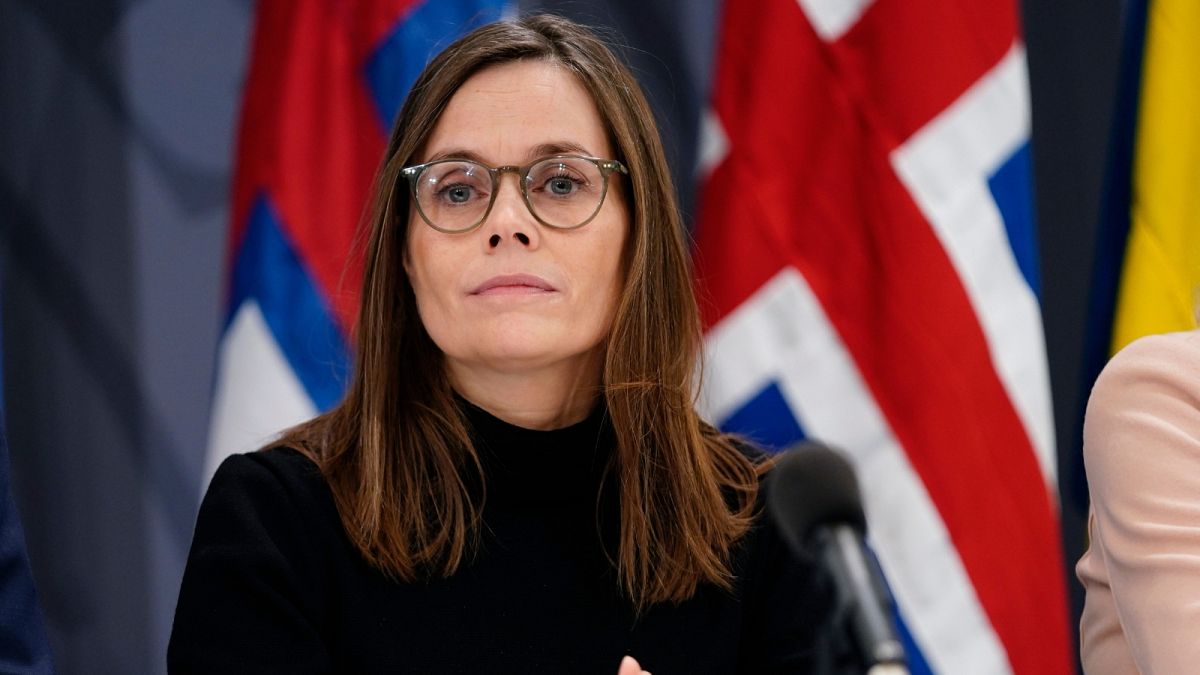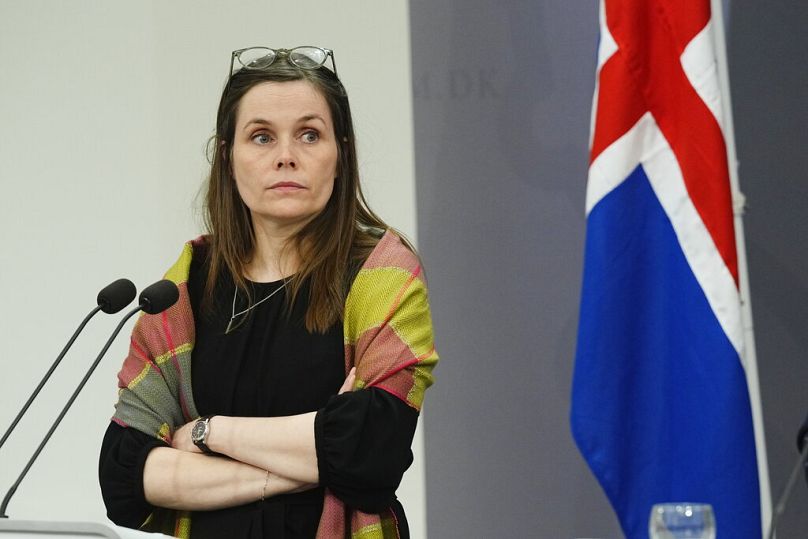Tens of thousands of women are striking in Europe's 'equality paradise', including their prime minister, but why?
Women and non-binary people in Iceland are striking on Tuesday, to protest against the country's persistent gender pay gap and widespread gender-based and sexual violence.
The action comes almost 48 years after Iceland's women first refused to work both inside and outside the home to prove their value to society, an unprecedented level of societal industrial action that paved the way for more equality and a female president.
Women workers in all sectors of the country will be absent from work, in a kvennafrí - women's day off - among them Prime Minister Katrín Jakobsdóttir.
“First and foremost, I am showing solidarity with Icelandic women with this,” Jakobsdóttir told the media.
"It's great that our Prime Minister is on strike, it shows how important this is, she's encouraging everyone. Even though she's in a privileged position, she's fighting for equal rights for all women in Iceland," Finnborg Salome, one of the organisers of the strike and a member of BSRB, the Icelandic Federation of Public Employees, told Euronews.
"She's fighting for women that are disabled, queer, non-binary, for example. These are the people who are discriminated against in the labour market and face many injustices," she added.
Symbolically, the strike takes place on the same day as the historic 1975 strike. In that year, data confirmed that 90% of women took part in the so-called kvennafrí.
The workplaces were empty and the streets crowded. In Reykjavik, the country's capital, some 25,000 women gathered, a significant number given that Iceland's total population at that time was just 210,000.
Tens of thousands of women are expected to participate in this one-day strike."We think it will be a massive strike, there is a great atmosphere in society," said Salome.
Sectors where women make up the majority of the workforce, such as health and education, will be particularly affected.
Iceland: a paradise of equality?
Although the feminist movement in Iceland has made great strides, organisations say there is still room for improvement.
The country has topped gender equality rankings for more than a decade and has become known as an 'equality paradise'.
Iceland's parliament has the highest proportion of women in Europe, at 47.6%. In addition, the female employment rate is much higher than in the rest of the continent: 77.5% in 2021, compared to 67.5% in the euro area.
However, the organisations claim that in some jobs women are paid as much as 21% less than men.
"We need action to eliminate the systematic discrimination against women in the labour market. We have big problems when it comes to income equality, women are more likely to do underpaid work and work part-time," said Salome.
BSRB also states that more than 40% of women have experienced some form of sexual violence in their lives.
"We have made great progress in Iceland in recent years. We have equal rights to parental leave, the right to abortion, women in power and in politics, but gender-based violence is still a big problem”.
By going on strike, Iceland hopes to inspire other countries to fight for women's rights and raise awareness.
"We are looking at Latin American women who have been striking against gender-based violence for six years. So I hope that women and non-binary people in other countries will also make these demands," she added.

